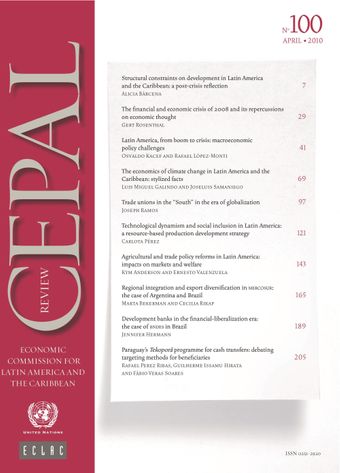-
Development banks in the financial-liberalization era: The case of BNDES in Brazil
- Source: CEPAL Review, Volume 2010, Issue 100, Apr 2010, p. 189 - 203
- Spanish
-
- 24 Apr 2010
Abstract
This article considers the potential repercussions of financial liberalization on the role played by development banks, particularly the National Bank for Economic and Social Development (BNDES), as the main source of funding for Brazil’s economic development process. Although liberalization can foster financial development, the latter tends to respond incompletely to the needs of economic development in less developed countries, such as Brazil. Analysis of the Brazilian case seems to confirm this thesis and shows that BNDES not only preserved but actually expanded its position on the domestic market in 1990-2006, despite the financial-liberalization policy that was implemented in that period.
© United Nations





